calvin coolidge
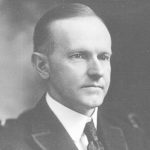 The Indian tribes didn’t usually have much use for the White Man, especially the ones who worked for the government. It seemed all they wanted to do was to herd the Indians onto the reservations and take away their lands, culture, and their language. This made the majority of Indians pretty angry, but President Calvin Coolidge was different than most government people. It wasn’t a matter of what he was able to accomplish, but rather what he wished he could accomplish, and maybe what he set the stage for…and mostly what the Indians knew was in his heart.
The Indian tribes didn’t usually have much use for the White Man, especially the ones who worked for the government. It seemed all they wanted to do was to herd the Indians onto the reservations and take away their lands, culture, and their language. This made the majority of Indians pretty angry, but President Calvin Coolidge was different than most government people. It wasn’t a matter of what he was able to accomplish, but rather what he wished he could accomplish, and maybe what he set the stage for…and mostly what the Indians knew was in his heart.
President Coolidge had made it very clear that, on personal moral grounds, he sincerely regretted the state of poverty to which many Indian tribes had sunk after decades of legal persecution and forced assimilation had been forced upon them. Coolidge made a public policy toward Indians, that included the Indian Citizen Act of 1924, which granted automatic United States citizenship to all American tribes, something that made perfect sense, since they had been here longer than the nation had existed. Nevertheless, during his two terms in office, while Coolidge 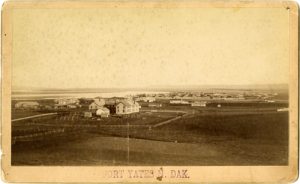 presented a public image as a strong proponent of tribal rights, the United States government policies of forced assimilation remained in full swing during his administration. At this time, all Indian children were placed in federally funded boarding schools in an effort to familiarize them with white culture and train them in marketable skills. During their schooling, they were separated from their families and stripped of their native language and culture, something that should never have happened, and something that has since been changed.
presented a public image as a strong proponent of tribal rights, the United States government policies of forced assimilation remained in full swing during his administration. At this time, all Indian children were placed in federally funded boarding schools in an effort to familiarize them with white culture and train them in marketable skills. During their schooling, they were separated from their families and stripped of their native language and culture, something that should never have happened, and something that has since been changed.
While not able to fix all the wrongs done to the Indians, Coolidge was still considered a friend of the Indians. In 1927, he planned a trip to the Black Hills region of North Dakota. In anticipation of the trip, the Sioux County Pioneer newspaper reported that a Sioux elder named Chauncey Yellow Robe, a descendant of Sitting Bull and an Indian school administrator, had suggested that Coolidge be inducted into the tribe. The article stated that 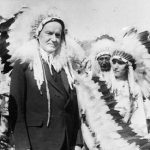 Yellow Robe graciously offered the president a “most sincere and hearty welcome” and hoped that Coolidge and his wife would enjoy “rest, peace, quiet and friendship among us.” Calvin Coolidge was very pleased at the offer, and decided to accept. This was not something that was offered to many people, so it was a great honor. The Sioux County Pioneer newspaper of North Dakota reported that on June 23, 1927 President Calvin Coolidge would be “adopted” into a Sioux tribe at Fort Yates on the south central border of North Dakota. At the Sioux ceremony in 1927, photographers captured Coolidge, in suit and tie, as he was given a grand ceremonial feathered headdress by Sioux Chief Henry Standing Bear and officially declared an honorary tribal member.
Yellow Robe graciously offered the president a “most sincere and hearty welcome” and hoped that Coolidge and his wife would enjoy “rest, peace, quiet and friendship among us.” Calvin Coolidge was very pleased at the offer, and decided to accept. This was not something that was offered to many people, so it was a great honor. The Sioux County Pioneer newspaper of North Dakota reported that on June 23, 1927 President Calvin Coolidge would be “adopted” into a Sioux tribe at Fort Yates on the south central border of North Dakota. At the Sioux ceremony in 1927, photographers captured Coolidge, in suit and tie, as he was given a grand ceremonial feathered headdress by Sioux Chief Henry Standing Bear and officially declared an honorary tribal member.
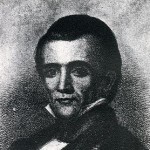
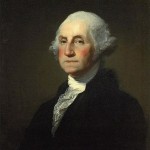 I have always known of my family’s relationship to Princess Diana, and I also knew about the Knox family’s relationship to James Knox Polk, who is Bob’s 2nd cousin 5 times removed, but in more recent years I have come across, or as one family member put it, tripped over a line of presidents on my side of the family as well as Bob’s. It seems that both of us are related George HW Bush, my 15th cousin once removed, and George W Bush, who is my 15th cousin 2 times removed. We are also related to, although in a roundabout way, Andrew Jackson, the husband of aunt of wife of 1st cousin 6x removed of my husband, Bob…I know, that one is a little bit complicated.
I have always known of my family’s relationship to Princess Diana, and I also knew about the Knox family’s relationship to James Knox Polk, who is Bob’s 2nd cousin 5 times removed, but in more recent years I have come across, or as one family member put it, tripped over a line of presidents on my side of the family as well as Bob’s. It seems that both of us are related George HW Bush, my 15th cousin once removed, and George W Bush, who is my 15th cousin 2 times removed. We are also related to, although in a roundabout way, Andrew Jackson, the husband of aunt of wife of 1st cousin 6x removed of my husband, Bob…I know, that one is a little bit complicated.
I did not know of the Spencer connection to, Calvin Coolidge, Franklin Delano Roosevelt, and George Washington. I also did not know of the Knox connection to the family history to Kentucky Frontiersman Daniel Boone, Benjamin Harrison, a signer of the Declaration of Independence; his son, William Henry Harrison, 9th President of the United States; his great-grandson, Benjamin Harrison, 23rd President of the United States and…President George Washington. At this point, I don’t know at what level we are related to these, but I am finding out that Bob’s family history and my family history are intermingled in several areas. Now that I have some of this information, I look forward to putting these people into my family history, so I can find out how we are connected and who else might be in the family.
I have also found out that on the Spencer side of the family, Henry and Isabella Lincoln Spencer, who lived in the 1400’s, had a very large influence on the United States, as well as England, through their offspring. And, I have found out that John and Jean Gracy Knox, who lived in the 1700’s, also had a large influence in American history through their offspring. It is very strange to me to look at the people in history, knowing that at the time they had children, they had no idea what impact those children and their descendants would have on the world. To be an American president or a signer of the Declaration of Independence, made these men very well known throughout history. Even a frontiersman from Kentucky who probably never gave any thought to what the future of our nation might be at the time he was doing his part to go down in history, has managed to become an endeared character in all the history books, as well as, in television shows and movies. Who would have ever thought that could happen?
It’s odd to think that, depending on what we do with our lives, any one of us could stand out in the history of the nation and the world. Little did anyone think of the future when they began whatever cause they held close to their heart, and yet, just a short time down the road, they have become a household name, written in every history book, with parks, schools, museums, and airports, named after them. I wonder if they had any inkling just how big they were going to become. It is mind boggling just to think back on it now, and I’m not them. Of course, they didn’t really know how big they would be at the time they were becoming so big. Still, 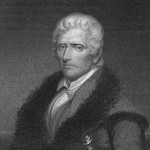
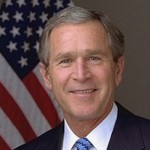 the presidents had to have known at the time they were elected that they had joined an elite group of men, and that would never change from that point on. Good or bad, right or wrong, the decisions they made from the first day of their presidency to the last, would be on record as either a testament or detriment to the man. I think that, in itself, would be a daunting thought, but in reality, they couldn’t think about that much when the decisions that affect a nation are in their hands. Just like their predecessors, they are a part of a long line of presidents, and some of them, are a part of my family.
the presidents had to have known at the time they were elected that they had joined an elite group of men, and that would never change from that point on. Good or bad, right or wrong, the decisions they made from the first day of their presidency to the last, would be on record as either a testament or detriment to the man. I think that, in itself, would be a daunting thought, but in reality, they couldn’t think about that much when the decisions that affect a nation are in their hands. Just like their predecessors, they are a part of a long line of presidents, and some of them, are a part of my family.

